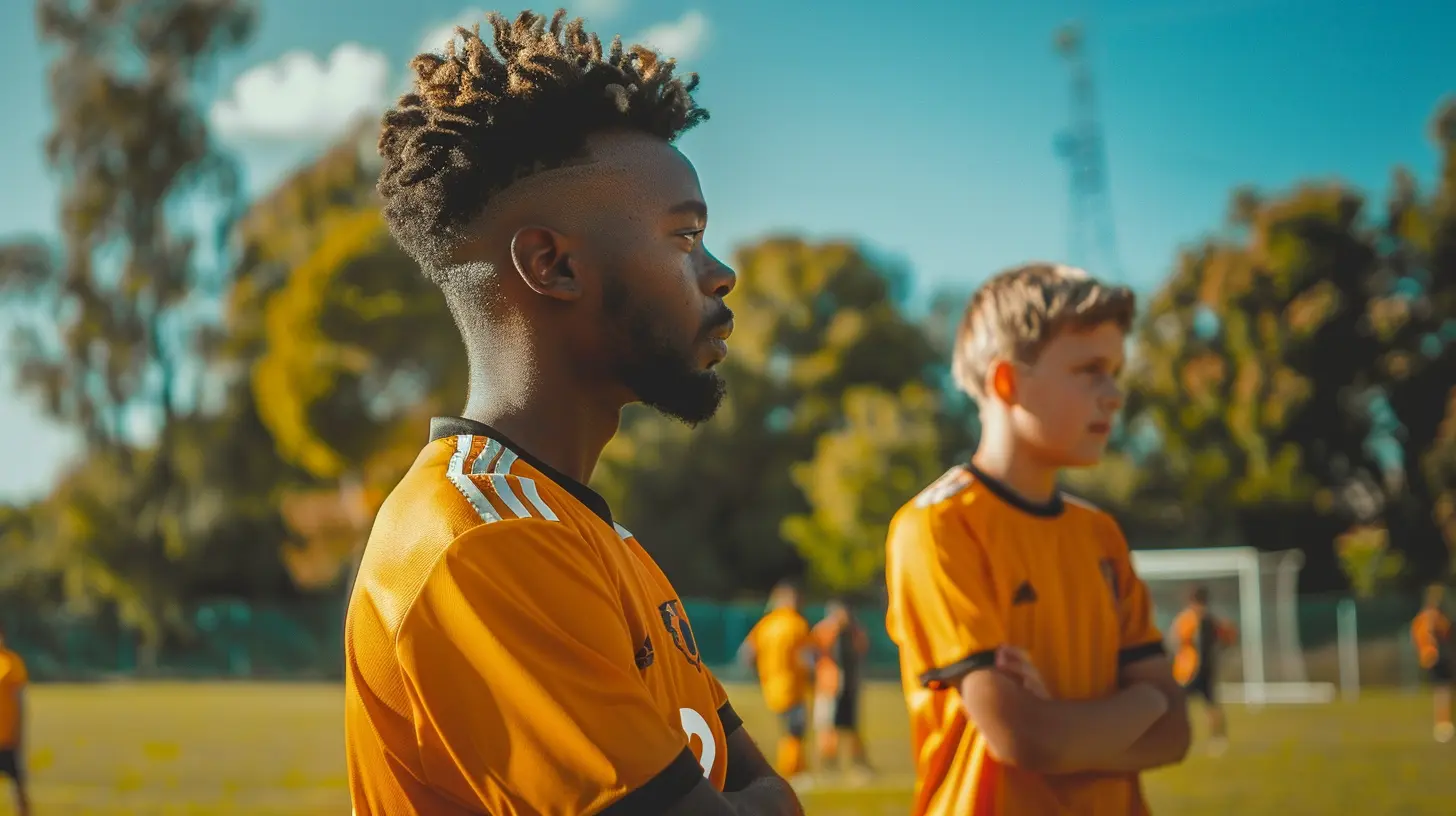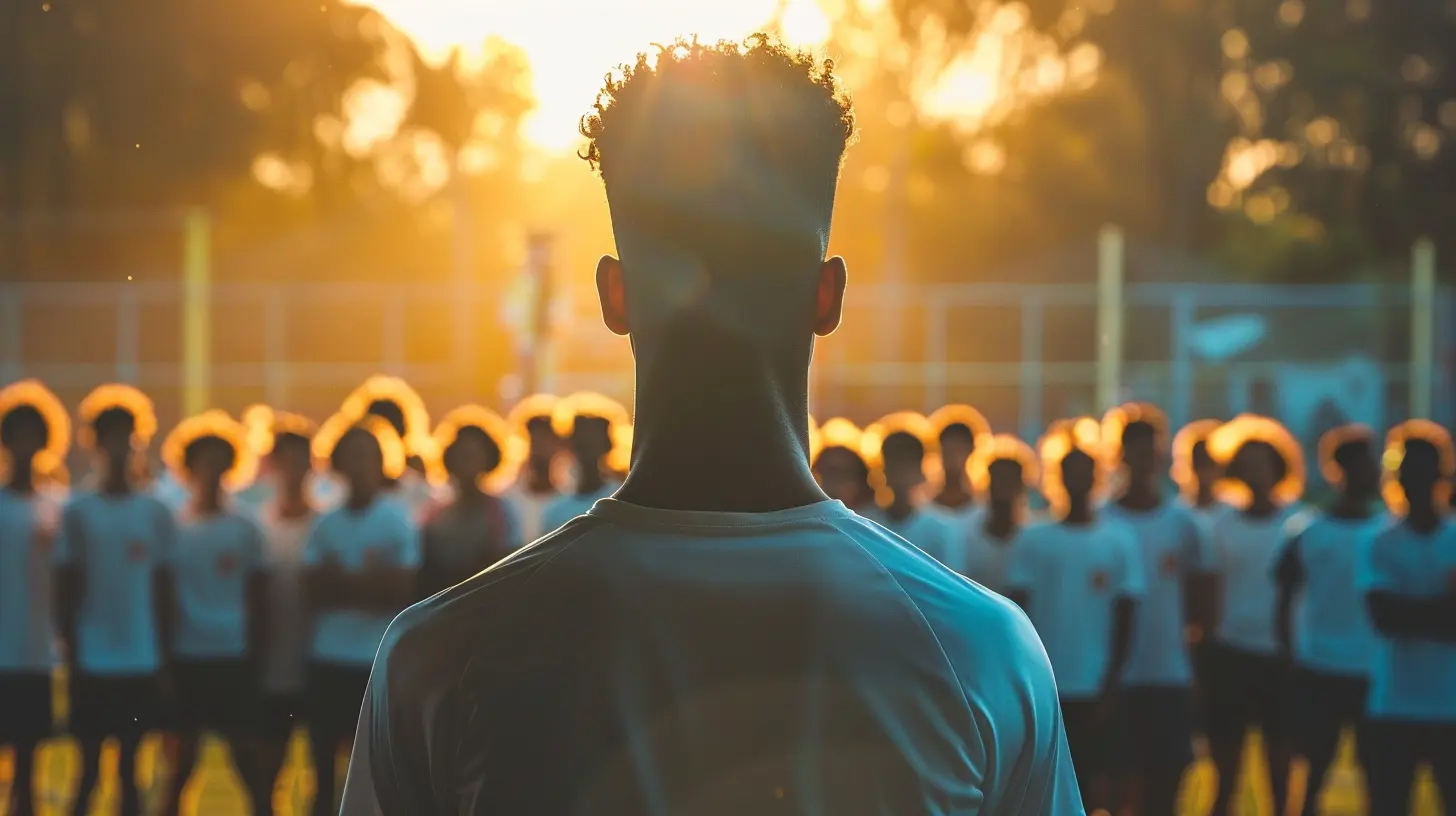The Mentor Approach: Building Trust Between Coaches and Players
4 July 2025
When you think about the greatest teams in sports history, what stands out? Talent? Sure. Strategy? Of course. But at the heart of every legendary team lies something less talked about—trust. And not just any kind of trust, but the kind that grows when coaches stop acting like drill sergeants and start thinking like mentors.
This is what we call the “Mentor Approach.” It’s a game-changer. Literally and figuratively.
In this post, we’re diving deep into how trust between coaches and players gets built, nurtured, and maintained through the mentor mindset. If you're a coach, athlete, or just someone who loves sports, there’s a lot to take away here.
What Is the Mentor Approach?
Let’s start with the basics. Coaching traditionally has been about giving orders, setting rules, and expecting results. But mentoring? That’s a whole different ball game.The mentor approach focuses on guidance, growth, and connection. Instead of just saying, "Do what I tell you," it’s about asking, "How can I help you grow?"
Think of a mentor as part coach, part big sibling, part life guide. They still hold players accountable, yeah. But they also listen, empathize, and invest time in understanding athletes as people.
And the result? Players aren't just playing for victory. They're playing for someone they trust.
Why Trust Is Everything In Sports
You can run a killer playbook or have the most stacked lineup, but if there's no trust between your team and coach, things can fall apart fast. Trust is the glue. It holds everything together.Players Perform Better When They Trust
When players trust their coach, they take feedback with an open mind. They hustle harder. They own their mistakes instead of hiding them. Why? Because they know the coach has their back, not just their stats.Ever notice how some teams just "click"? A lot of that is born from trust—not fear, not pressure—but genuine belief in one another.
Traits of a Mentor Coach
So what makes a coach a mentor? It's not about age or experience—it's about attitude. Here are a few must-have traits:1. Authenticity
Players can smell fake a mile away. A mentor coach is real—warts and all. They admit when they mess up. They’re honest without being harsh. And that creates an environment where players feel safe doing the same.2. Empathy
Great mentors listen more than they speak. They understand that players come from different backgrounds, deal with different pressures, and respond in different ways.Instead of saying, “Toughen up,” a mentor asks, “What’s going on?”
3. Consistency
Few things kill trust faster than inconsistency. One day you’re chill, the next day you're blowing up over small stuff. Mentor coaches set clear expectations and stick to them.They don’t play favorites. They treat everyone fairly—even if not always equally.
4. Patience
Growth doesn’t happen overnight. Mentor coaches understand that athletes will stumble, struggle, and sometimes completely miss the mark. But they don’t give up. They guide. They support. They steer the ship through the storms.
How Coaches Can Start Building Trust
Whether you’re new to coaching or have seasons under your belt, it’s never too late to shift to the mentor approach. Here’s how to start.1. Build Relationships First
Before diving into stats, drills, and tactics—get to know your players. Really. Ask about school, family, hobbies. Celebrate small wins off the field.Players don’t care how much you know until they know how much you care.
2. Communicate Openly (And Often)
Be transparent about your goals, your standards, and even your decisions. If someone gets benched or switched positions—explain why. Respect breeds trust.And let players have a voice too. Ask for feedback. Involve them in discussions. Make communication a two-way street.
3. Be There Beyond The Game
Show up when it’s not game day. Support players through tough times at home, school struggles, or emotional challenges. A mentor coach is a rock in all aspects—not just during practices.4. Model The Behavior You Want To See
Want players to be accountable? Be accountable. Want them to be respectful? Show respect—even when you're frustrated. Players often mirror what they see.The Athlete’s Role in the Mentor Approach
Trust is a two-way street. Players have a role to play in this dynamic too. Here’s how athletes can lean into the mentor-coach relationship:1. Stay Open-Minded
Not every bit of feedback is going to be sunshine and rainbows. But if you feel your coach truly wants to see you grow, take criticism as a gift—not an attack.2. Be Honest
If you’re struggling—speak up. If something feels off—bring it up. Mentorship works best when there’s honesty on both sides.3. Commit to Growth
Mentor coaches will go above and beyond for you—but you’ve gotta meet them halfway. Show up. Work hard. Stay hungry.Real-Life Example: The Power of Mentorship
Let’s look at a real-world example to bring it all home.In the NBA, players often credit Coach Gregg Popovich of the San Antonio Spurs not just for his basketball IQ—but for his people-first approach. He learned players' languages, celebrated their cultures, and built real relationships.
Players didn’t just play for him—they played with him. And when you look at the Spurs' consistent success, it's clear that trust and mentorship had as much to do with it as any game plan.
Incorporating The Mentor Approach at Every Level
You don’t need to be coaching in the pros to use this approach. Whether it's youth soccer, high school volleyball, or college baseball—mentorship fits at every level.In fact, the earlier you start nurturing trust, the better. Young athletes build habits and mindsets that last way longer than their time on the team.
Make mentorship part of the culture from day one. It’ll pay off in performance, unity, and lasting relationships.
Common Mistakes To Avoid
Even with the best intentions, coaches can fall into traps that chip away at trust. Watch out for these:- Playing Favorites
It’s natural to connect more with some players. But fairness is key. When players feel overlooked or unfairly treated, trust disappears fast.- Over-Coaching
Yes, guidance is great. But constant micromanaging can make players feel suffocated. Mentor coaches know when to teach—and when to let players figure things out.- Ignoring Mental Health
Athletes aren’t machines. They get tired, anxious, overwhelmed. If your coaching doesn’t take mental health into account, you’re missing a big piece of the puzzle.The Long-Term Impact of Trust
When trust is real, teams don’t just perform better—they stick together. Athletes stay loyal. They pass on those values as future players and coaches. The ripple effect is powerful.Mentorship plants seeds far beyond the season. Years later, players won’t just remember the wins—they’ll remember how you made them feel. That you saw them. Believed in them. Helped them grow.
And honestly, isn’t that what coaching is really about?
Final Thoughts
The mentor approach isn’t about being soft or letting things slide. It’s about being strong enough to lead with compassion, consistent enough to earn respect, and humble enough to learn alongside your players.When trust takes the field with you, everything changes. Teams rise, players evolve, and the game becomes something far more meaningful.
So whether you're holding a whistle or lacing up your cleats, ask yourself:
Are you leading through power—or through trust?
Because the second one? That’s where the magic happens.
all images in this post were generated using AI tools
Category:
Coach ProfilesAuthor:

Easton Simmons
Discussion
rate this article
1 comments
Milena McIntosh
Trust: the secret sauce for coaching magic!
July 17, 2025 at 3:40 AM

Easton Simmons
Absolutely! Trust is essential for creating a strong, open relationship that fosters growth and development in coaching.


